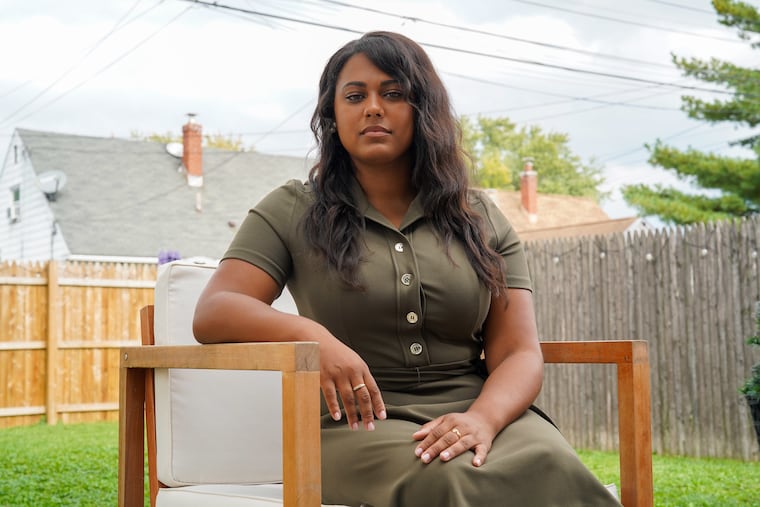Staff at a Montco addiction and behavioral hospital say they’re understaffed and unprotected from COVID-19
“COVID is exacerbating everything — we had a lack of staff before COVID, and COVID exacerbated the bad things and made them worse," one nurse said.

Nurses and technicians at Eagleville Hospital are calling on state health officials to address what they say are dangerously low staffing levels and inadequate COVID-19 prevention at the Montgomery County hospital, which treats people with addiction and behavioral health issues.
In a Jan. 5 letter to acting State Health Secretary Keara Klinepeter, the hospital’s staff union — a chapter of the Pennsylvania Association of Staff Nurses and Allied Professionals — wrote that COVID patients at Eagleville aren’t being properly isolated and that masking policies for patients aren’t being enforced.
Nurses aren’t being tested regularly, they said, and aren’t notified about how many COVID-positive patients they are responsible for so they can isolate them.
In a statement, Eagleville CEO Gene Ott wrote that COVID patients are isolated to their rooms or transferred to a COVID-positive-only ward and that nurses are expected to use their change-of-shift reports to notify one another about positive patients.
Hospital officials said in a separate statement that they have been “diligent and responsive” to COVID and the omicron variant and that the hospital has “worked diligently to protect our patients and staff while continuing to serve the vital needs of our community.”
The hospital is “acting in strict accordance with all CDC guidelines,” officials wrote, adding that they are cooperating with state and county agencies to “meet the evolving challenges presented by this pandemic.”
Nurse Kendra Barkasi, president of the Eagleville chapter of PASNAP, said she had to push to get a COVID test for a technician on her ward who felt sick. When the technician was finally tested, she said, the test came back positive.
“She exposed every one of my patients while checking vital signs, because she was refused a test when she said, ‘I don’t feel well,’” Barkasi said. “We’re not going to stop the spread at Eagleville, because we’re not stopping the exposures.”
She said staff who have been treating COVID-positive patients are not confined to those wards, treating COVID-negative patients, as well, placing them at risk for exposure. Another nurse, who asked not to be identified for fear of retaliation, said patients exposed to COVID aren’t tested unless they’re symptomatic.
Ott wrote that all staff demonstrating symptoms or who have a “significant exposure” are offered testing during business hours, seven days a week. The institution has tested 500 employees with a new PCR testing device since November, he said. Eagleville doesn’t have the kind of lab infrastructure that a traditional acute-care hospital would, he added.
The hospital is also experiencing staffing shortages, Barkasi said, that are prompting even more nurses to leave because they’re asked to handle too many patients. In previous years, Barkasi said, two nurses were assigned to a 44-patient unit. Now one nurse is handling all of those patients.
“It’s too much to deal with,” she said. “And COVID is exacerbating everything — we had a lack of staff before COVID, and COVID exacerbated the bad things and made them worse.”
Now, Barkasi said, nurses are worried their patient load might cause them to miss crucial signs that a patient is struggling. The aftershocks of a 2017 patient suicide still hang over the staff, she said.
“The scary thought is that we’re not seeing [suicidal] behaviors, because there aren’t enough of us,” she said. “Some people, we can see them escalating. But it’s the ones who don’t want to say anything, people who don’t come up to the nurse, who are isolating, that we just might not be aware of.”
Ott said COVID has decimated hospital staffs around the country, and added that residential units are also staffed with therapists, case managers, and clinicians.
In a statement, State Department of Health spokesperson Maggi Barton said the department is aware of the nurses’ letter but cannot comment.
“We can confirm that it is the department’s policy to take any allegations of actual or potential patient or staff safety or quality of care issues seriously and investigate fully,” she said.
“The Department of Health recognizes the overwhelming pressure nurses and other health-care workers are facing and encourages open communication with the department to ensure that health-care facilities in Pennsylvania are safe for the patients that rely on their services and the staff that keep them running.”